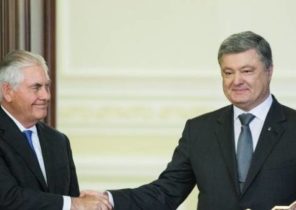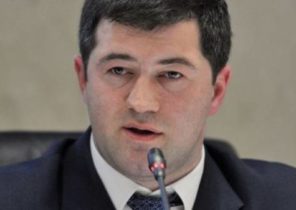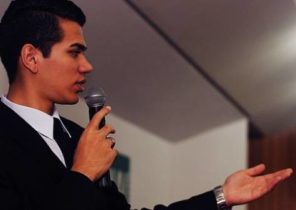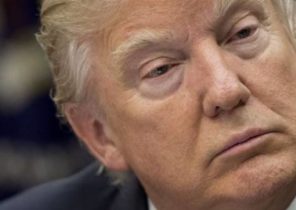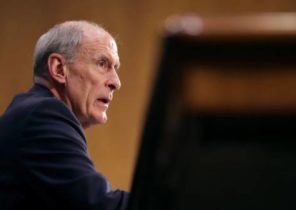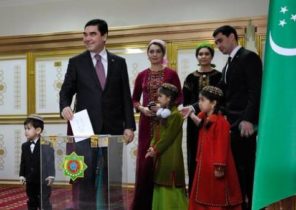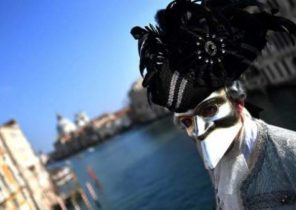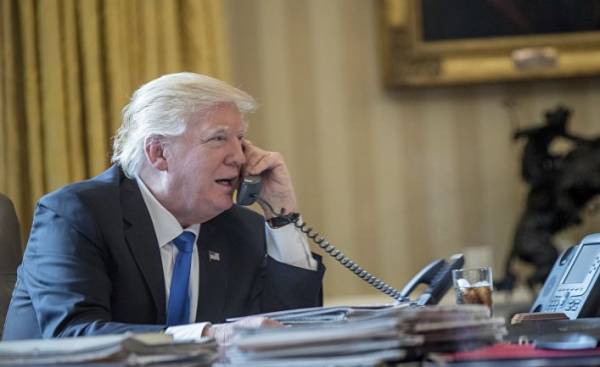
WASHINGTON — While the White house fighting off attacks in connection with the investigation of Russia’s intervention in last year’s elections, President Donald trump has ceased to lavish praise of his Russian colleagues.
Since joining trump in the post just over a month, and the likelihood of a spring thaw in relations between Washington and Moscow on the background of mutual affection, which showed trump and the President of Russia Vladimir Putin during the election campaign in the United States, has significantly decreased, said us officials.
Leading trump’s advisers on foreign policy have toughened rhetoric toward Russia, and the obvious cooling from the us President followed the dismissal of his national security adviser Michael Flynn in February — an ardent supporter of its ties with Moscow. To replace him came Lieutenant-General Herbert McMaster, who takes a tougher stance against Russia as defense Minister James Mattis, a retired marine General.
Another sign of the tightening of Washington’s vision was that the White house, according to two officials, was offered the position of leading adviser on relations with Russia in national security Council Fiona hill, one of the main critics of Putin. Hill is an expert on Russia, and among the books written by her — “Putin: operative in the Kremlin”, whose title refers to Putin’s service in KGB. It is not clear whether she has agreed to take the post.
The pressure and the President’s party members in Congress, long wary of being trump’s overtures towards Putin and European allies who fear any signals about the premature easing of sanctions imposed on Russia due to the annexation by Moscow of Crimea and its role in the bloody conflict in Eastern Ukraine.
A new obstacle to rapprochement with Russia, according to analysts, may become the latest evidence that the U.S. attorney General Jeff sessions, as well as trump in-law Jared Kushner and other members of the President’s team was in contact with Russian officials during the election campaign.
Contacts and Roman sessions with the Russian Ambassador in Washington was the focus of attention, and the attorney General under pressure from Congress and the press refused to participate in the investigation of Russian interference in the presidential election of 2016, to ensure impartiality.
Trump’s relationship with Russia and Moscow’s attempts to influence American elections have become one of the most burning issues on the domestic political agenda of the United States.
“In the ranks of the American political establishment is now such a panic over Russia that trump remains little room for manoeuvre,” said Matthew Rojansky, a Russia expert from the International scientific center named after Woodrow Wilson in Washington.
White house officials deny invalid contacts with Russia; Moscow says did not intervene in American elections.
Not forgetting the sanctions
Trump has not yet announced its policy against Russia, despite expectations on the part of the allies and Moscow (the Kremlin said the other day that is “full of patience” waiting for clarity with the policy of the new us administration).
But there was little evidence of the probability of rapid change of relations between the two countries in the presidency of Barack Obama stretched to limits not seen since the cold war, mainly because of the deep divisions in Syria and Ukraine.
Mattis during a trip to Europe in February sought to reassure NATO allies, saying that military cooperation between the US and Russia in the near future.
US Ambassador to the UN, Nikki Haley this week criticized Russia imposed a veto in an effort to protect the Syrian government from actions of the security Council in connection with allegations of use of chemical weapons. In addition, the Ambassador stated recently that the United States should not recognize the annexation of Crimea to Russia, the possibility that reasoned in the pre-season trump.
His rhetoric about the prospects of rapprochement with Russia in the field of fighting terrorism and Islamic state (a terrorist organization banned in Russia — ed.) raised concerns of current and former American officials. They suspect that the President may compromise US interests in other areas in exchange for military cooperation and intelligence cooperation.
But the tone of trump’s statements have changed slightly in comparison with the election campaign, when he admired the leadership skills of Putin, the Russian President answered the counter pleasantries.
“I would very much like to improve relations with Russia”, — said trump at a press conference in mid-February, but added that “I may not be able to get along with Putin.”
Two high-ranking European official told reporters in Washington this week that he had noticed a change in the position of the administration trump against Russia. They believe that the White house seems reluctant to get involved in such a “big deal”, which can be cancelled with Ukraine related sanctions.
“We find encouraging the fact that, at least during our meetings, no one suggested this idea for large transactions, good exchange,” said one of the officials, who spoke on condition of anonymity.
Putin called twice Trump after a surprise victory last election and expressed his readiness for a personal meeting. However, trump was convinced that this meeting will be held: in an interview with Reuters last week, he promised to discuss with Putin the parity of nuclear arsenals — “if and when we meet”.
American Republican Senator Marco Rubio, which is included in the Senate Committee on foreign relations, and also participated in last year’s presidential race, has warned trump about the future of relations with Putin.
“We’ve already had two presidents — Republican and Democrat — before the current head of state, who thought that they can negotiate with Vladimir Putin”, — he said in the Senate on Wednesday.
“Both failed, because I didn’t understand what you’re dealing with. I sincerely hope that our current President will not repeat these mistakes.”

